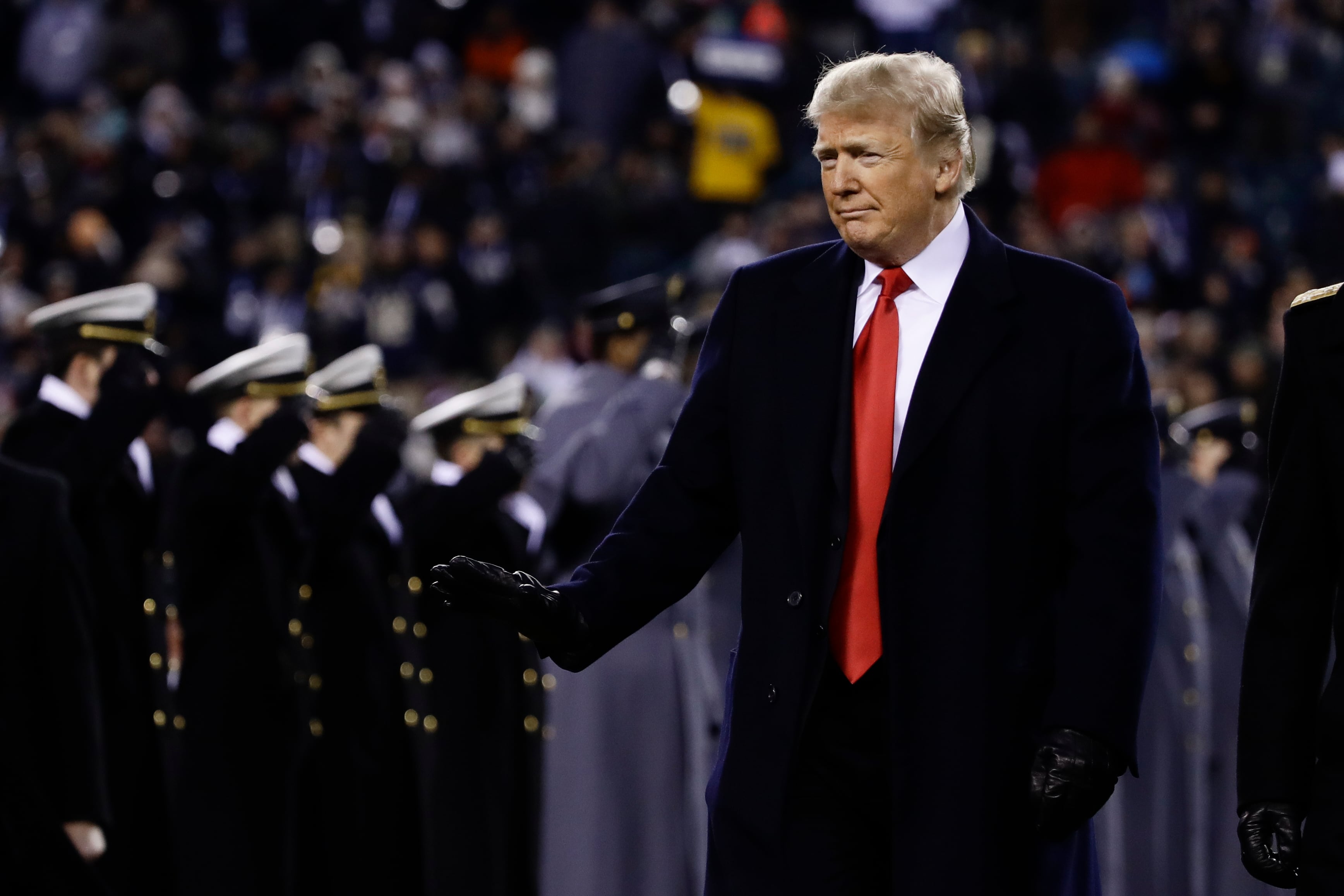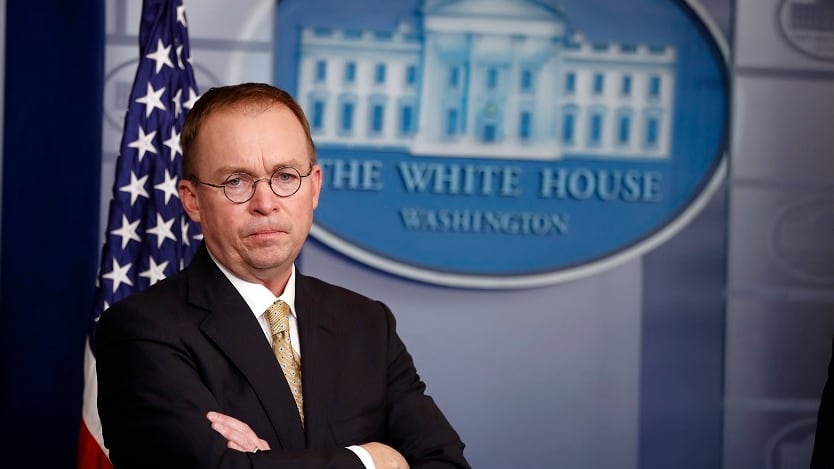WASHINGTON — White House officials are planning to increase military spending for fiscal 2020 by using temporary war funding accounts to get around federal budget caps, a controversial move that could undermine negotiations with lawmakers.
In an essay for Real Clear Politics on Monday, acting Office of Management and Budget Director Russ Vought wrote that the move is needed because “Democrats insist on demanding more social spending in exchange for continuing to fund defense spending,” while President Donald Trump has called for cuts.
“Expanding the use of (overseas contingency) funds remains the administration’s only fiscally responsible option in meeting national security needs while avoiding yet another increase to the spending caps,” he wrote.
He acknowledged that the move is likely to make fiscal conservatives “uncomfortable” but called it necessary given political opposition to Trump’s past fiscal plans.
RELATED

The move comes as several lawmakers and budget analysts have pushed for reductions in the temporary war funding accounts, designed to cover only the ongoing operations overseas.
Critics say that because the accounts aren’t affected by congressionally mandated spending caps, they have become a hiding place for a host of desired program resets and expansions by the Pentagon.
The size of the war accounts has shrunk in recent years, from more than $100 billion in fiscal 2017 to less than $69 billion this fiscal year. Vought did not specify how large the president’s request for fiscal 2020 will be, but Politico reported the fund could top $174 billion.
In the last few months, Trump has discussed a 5 percent cut for all federal agencies next fiscal year, as well as a $750 billion defense budget, an increase of more than 4 percent. The president and conservative defense lawmakers have argued the money is needed to rebuild military might after more than 17 years of war.
But congressional Democrats have already panned the military proposal as too high and said that adequate appropriations for the Departments of State and Homeland Security are as critical to national security as Pentagon spending. They have promised to make funding parity a key point of upcoming budget negotiations.
House Armed Services Committee Chairman Adam Smith, D-Wash., and House Budget Committee Chairman John Yarmuth, D-Ky., blasted the war funding reports as “a gimmick to prop up defense spending” by the Trump administration.
RELATED

“This is nothing more than a blatant attempt to make a mockery of the federal budget process, obscure the true cost of military operations, and severely shortchange other investments vital to our national and economic security,” they said in a statement.
In the last two fiscal years, lawmakers reached a compromise on defense and non-defense spending levels to avoid spending caps put in place in 2011. But those caps return again next fiscal year and limit defense spending to $576 billion and nondefense spending to $542 billion.
Vought said raising the cap for defense spending is necessary but lifting it for the other programs “would be a bad deal for taxpayers.” He called the national debt a looming crisis for the country.
“It is time for Congress to join the president in his commitment to cutting spending, reducing bloated deficits, and getting our national debt under control,” he said. “America’s future generations are depending on them.”
Leo covers Congress, Veterans Affairs and the White House for Military Times. He has covered Washington, D.C. since 2004, focusing on military personnel and veterans policies. His work has earned numerous honors, including a 2009 Polk award, a 2010 National Headliner Award, the IAVA Leadership in Journalism award and the VFW News Media award.





